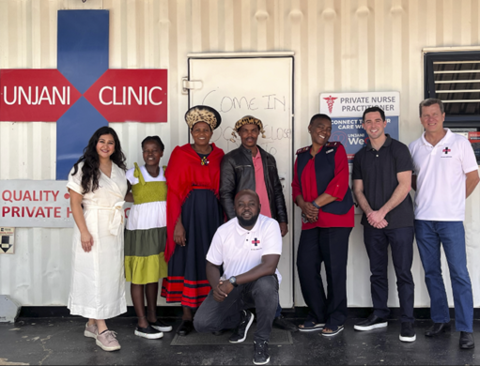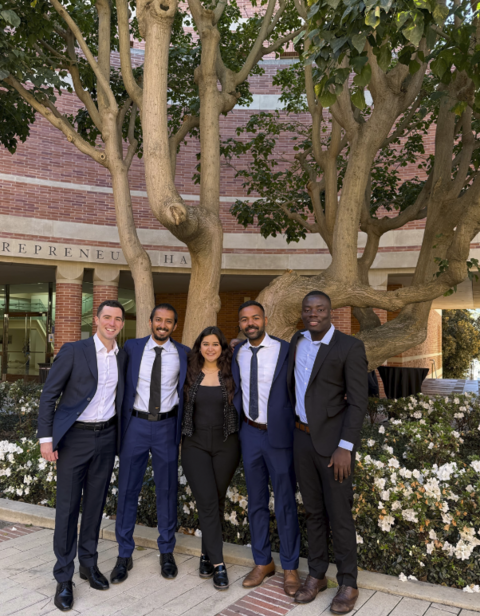Designing a Scalable Health Hub Model to Expand Access to Affordable Mental Health and Specialized Care in South Africa

(Human Sciences Research Council & Unjani Clinic, SOUTH AFRICA)
The Human Sciences Research Council (HSRC) was established in 1968 as a South African statutory research agency and has grown to become Africa’s largest dedicated research institute in the social sciences and humanities, with the mission to understand and explain social conditions and inform social change for inclusive growth in communities.
In its 10th year of collaboration with the HSRC, the Applied Management Research (AMR) program partnered with Unjani Clinic, a nurse-led nonprofit healthcare network in South Africa, to address the country’s growing mental health crisis. Unjani Clinic operates over 245 clinics nationwide, providing affordable primary care to underserved communities through a social franchise model that empowers Black female nurses as clinic owners and operators in the rural and township communities of South Africa. Building on this success, with research support from the HSRC, Unjani sought to expand its services to include specialized care — particularly mental health, dentistry and optometry — through a centralized “health hub” model.
The AMR team was tasked with evaluating the operational and financial feasibility of this health hub concept. Their work was informed by the Lotus Gardens pilot program, an early attempt to integrate mental health services that was discontinued after four months due to low patient engagement, financial sustainability challenges and limited community awareness. Drawing on lessons from the pilot, the team developed a robust four-step methodology to guide the strategic rollout of health hubs. This framework included regional analysis of clinic performance, site-specific assessments, service prioritization based on community needs and optimization of mental health provider selection.
The team applied this methodology to a case study in Soweto, a densely populated township in Johannesburg with nine Unjani clinics and high demand for specialized services. Through extensive primary research — including traveling to Johannesburg and conducting interviews with nurses, patients and traditional healers, as well as a survey of over 150 clinic staff — the team identified dentistry, optometry and mental health as the most urgently needed services. They also developed a financial model demonstrating that a Soweto health hub could break even within its first year of operation and achieve a payback period of under six years.
To ensure sustainability and community alignment, the team recommended a phased implementation strategy. Initially, Unjani would own and operate the hub to validate the model before transitioning to a nurse-led franchise structure. They also proposed employing a hybrid staffing model using part-time counseling psychologists and social workers to balance clinical effectiveness with cost efficiency. Additional recommendations included targeted community engagement campaigns, partnerships with traditional healers and structured referral systems to increase patient uptake.
The project also explored various ownership models for the health hub, including cooperative and franchise-led approaches, each with distinct implications for scalability, quality control and community engagement. The team ultimately recommended a phased transition from centralized to nurse-owned operations, aligning with Unjani’s core mission of empowering healthcare entrepreneurs. This approach would allow for quality assurance during the early stages while preserving the long-term benefits of local ownership and accountability.
By combining rigorous analysis with deep cultural sensitivity, the AMR team delivered a comprehensive, scalable solution that not only addresses South Africa’s urgent mental health needs, but also strengthens the Unjani Clinic network’s capacity for innovation and impact. Their work exemplifies the power of cross-sector collaboration in tackling complex public health challenges and was recognized with both the Palm Tree Award and the Edward V. Sedgwick Award for excellence in leadership, research and report quality.







